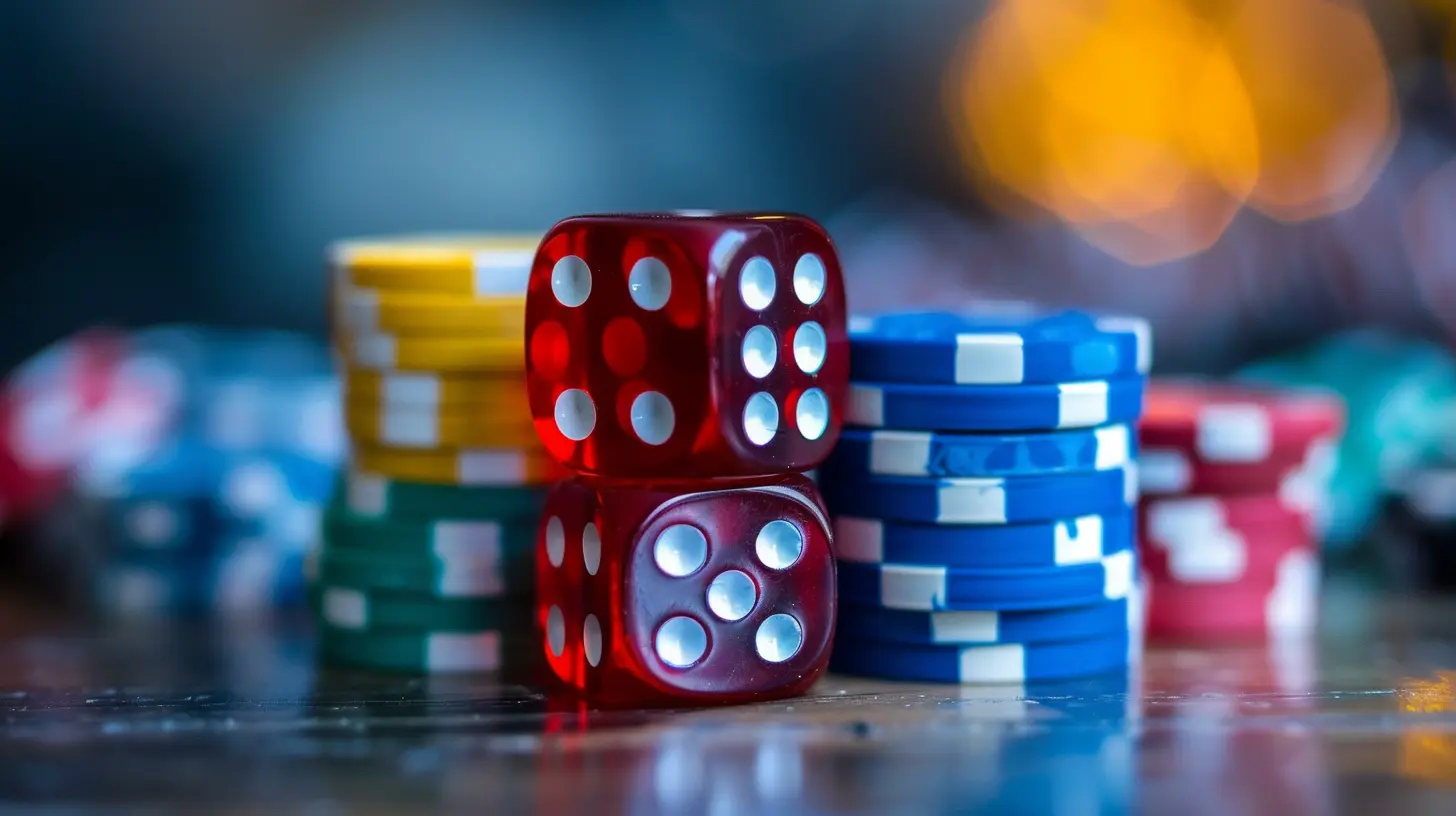The Psychology of Risk-Taking: Understanding Why We Gamble
15 November 2025
Gambling has been a part of human history for centuries. Whether it’s rolling dice, playing poker, or betting on sports, the thrill of risk-taking has always fascinated us. But why do we do it? Why do some people crave the uncertainty that comes with gambling while others shy away from it?
At its core, gambling is more than just a game of chance. It taps into deep psychological mechanisms that influence our decision-making, emotions, and even survival instincts. Let's break down the psychology behind risk-taking and what drives us to take those chances.

Why Do We Take Risks?
Humans are inherently wired to take risks. From our ancestors hunting dangerous animals to modern entrepreneurs investing in uncertain ventures, risk-taking is a fundamental part of human nature. But why does it appeal to some more than others?1. The Brain’s Reward System
One of the biggest reasons we take risks is because of the brain's reward system. When we engage in risky behavior—whether it’s gambling, skydiving, or making a high-stakes business move—our brain releases dopamine, a feel-good neurotransmitter.Dopamine is like the brain’s natural high. It makes us feel pleasure and excitement, reinforcing our actions and encouraging us to take more risks. This is why people who win a bet or hit the jackpot feel a rush of euphoria, driving them to gamble again.
2. The Thrill of Uncertainty
Ever wondered why surprises are so exciting? It's because our brain loves the unknown.Uncertainty activates the brain’s pleasure centers, making risk-taking feel exhilarating. This is the same reason why horror movies, roller coasters, and even lottery tickets are so appealing. The anticipation of an unpredictable outcome keeps us hooked.
In gambling, this uncertainty works like a charm. The possibility of winning big—despite knowing the odds are against us—creates an irresistible thrill.
3. The Illusion of Control
One of the biggest psychological traps in gambling is the illusion of control. This is when people believe they have more influence over an outcome than they actually do.For example, many gamblers think they can improve their chances by using "lucky numbers" or superstitious rituals. In reality, most gambling games are based on pure chance, but the belief in control keeps people coming back.
4. The "Near-Miss" Effect
Have you ever been one number away from winning and thought, “I was so close! Maybe next time”? That’s the near-miss effect, and it plays a huge role in gambling behavior.Studies show that near-misses trigger the same brain response as actual wins. This means that almost winning can be just as motivating as an actual win, making gamblers more likely to continue playing despite losing.
5. Social and Cultural Influences
Gambling isn't just about personal thrill; social and cultural factors also play a huge role.- Peer Pressure – Seeing friends or family members gamble can make it seem more acceptable or encourage participation.
- Cultural Norms – In some societies, gambling is deeply ingrained in traditions and entertainment.
- Media Influence – Movies, advertisements, and sports betting promotions glamorize gambling, making it more desirable.
6. Personality Traits and Risk-Taking
Not everyone is drawn to gambling. Some people are naturally more inclined to take risks than others.Research suggests that personality traits like sensation-seeking and impulsivity can predict gambling behavior.
People who crave excitement and new experiences are more likely to take risks, while those who are more cautious or risk-averse tend to avoid gambling.

The Dark Side of Risk-Taking
While gambling can be fun and entertaining, it also has a darker side. Risk-taking can become addictive, leading to financial loss, emotional distress, and even mental health issues.1. Gambling Addiction
For some individuals, gambling goes beyond entertainment and turns into an addiction. This happens when the brain becomes dependent on the dopamine rush, leading to compulsive gambling despite negative consequences.Signs of gambling addiction include:
- Constantly thinking about gambling
- Chasing losses (trying to win money back)
- Hiding gambling habits from loved ones
- Feeling restless or anxious when trying to stop
2. The Sunk Cost Fallacy
One of the biggest psychological traps in gambling is the sunk cost fallacy—the belief that you should keep gambling because you've already invested too much.For example, if someone has lost $500, they might think, “I’ve already lost so much, I need to keep going to win it back.” This kind of thinking leads to even greater losses.
3. Emotional Decision-Making
Emotions play a major role in gambling behavior. When people are feeling stressed, anxious, or even overly excited, they may make irrational decisions and take bigger risks than they normally would.Casinos and online gambling sites often use psychological tricks to keep players engaged, such as:
- Flashing lights and sounds – To create a sense of excitement and winning.
- "Free play" offers – To get users hooked without realizing they’re spending money.
- Easy credit options – To encourage continuous play, even when funds are running low.

How to Manage Risk-Taking Behavior
Taking risks isn't always a bad thing. In fact, calculated risks can be beneficial in life, whether it's starting a new business or pursuing a new career. The key is to understand when risk-taking is healthy and when it becomes harmful.Here are some ways to manage gambling and risk-taking behaviors:
1. Set Limits
If you choose to gamble, set strict limits on how much money and time you're willing to spend. Once you've reached your limit, walk away.2. Recognize Triggers
Pay attention to what triggers your gambling habits. Are you gambling out of boredom, stress, or excitement? Understanding your motivations can help you make more rational decisions.3. Take Breaks
If you feel the urge to gamble frequently, try taking breaks or engaging in other activities that provide excitement, such as sports, hobbies, or travel.4. Seek Support
If you find yourself struggling with gambling addiction, don't be afraid to seek help. Support groups, therapy, and financial counseling can help regain control.
Conclusion
Risk-taking is a fundamental part of human nature, and gambling taps into this deep-seated psychological tendency. From the thrill of uncertainty to the brain's reward system, our minds are wired to enjoy taking chances.However, it's important to approach gambling with awareness and self-control. While the occasional bet can be fun, excessive risk-taking can lead to detrimental consequences. Understanding the psychology behind gambling can help us make better decisions and enjoy risk-taking in a healthy way.
all images in this post were generated using AI tools
Category:
Psychological ResearchAuthor:

Nina Reilly
Discussion
rate this article
1 comments
Thor Ross
This article effectively explores the psychological motivations behind gambling, highlighting the interplay of thrill-seeking, reward mechanisms, and cognitive biases that drive individuals to engage in risky behaviors.
November 17, 2025 at 4:00 AM

Nina Reilly
Thank you for your insightful comment! I'm glad you found the exploration of psychological motivations in gambling compelling.


